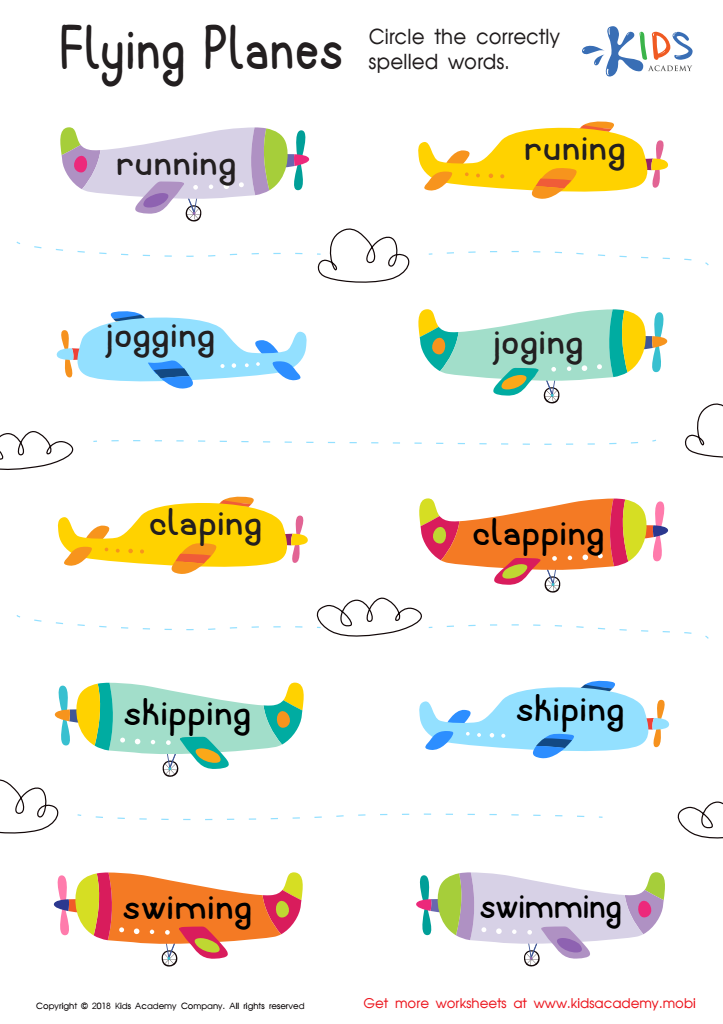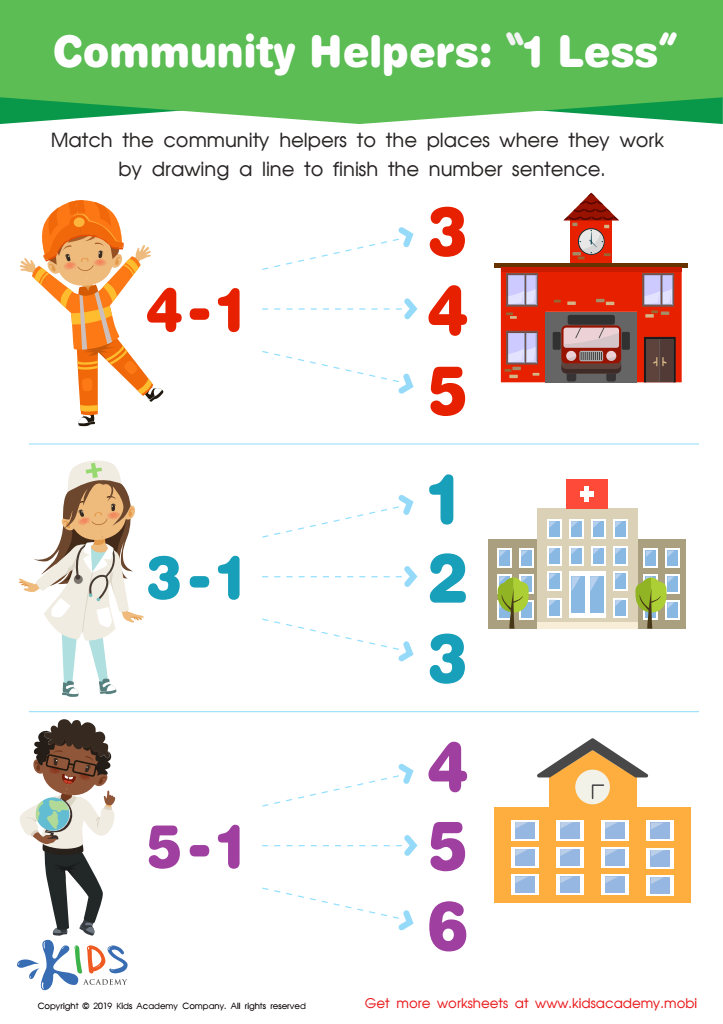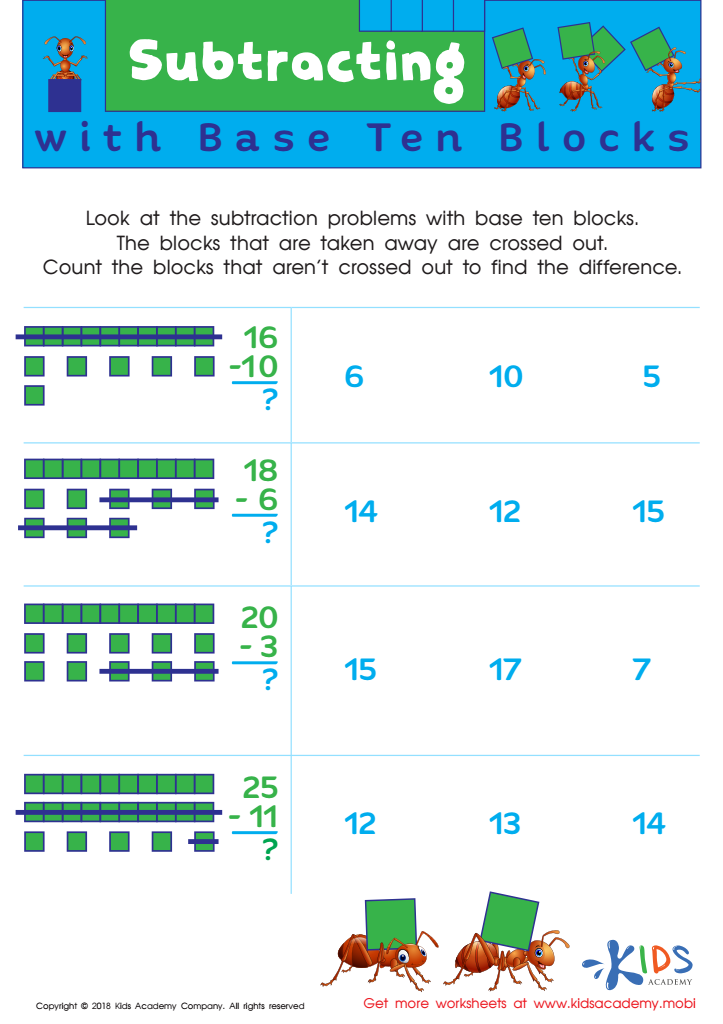Understanding subtraction Extra Challenge Worksheets for Ages 4-8
3 filtered results
-
From - To
Unlock your child's mathematical potential with our "Understanding Subtraction Extra Challenge Worksheets" designed specifically for ages 4-8. These engaging worksheets provide a variety of fun and challenging problems that help children grasp the concept of subtraction through playful activities. Tailored for young learners, each worksheet promotes critical thinking and problem-solving skills while reinforcing foundational math concepts. Perfect for home or classroom use, these resources encourage students to explore subtraction in a supportive environment. Elevate your child’s learning experience today, and watch as they build confidence and mastery in subtraction, setting the stage for future success in mathematics!


Flying Planes Worksheet


Community Helpers: 1 less Worksheet


Subtracting with Base Blocks Worksheet
Understanding subtraction is crucial for children aged 4-8 as it forms the foundation for their future mathematical skills. At this developmental stage, children are beginning to grasp basic concepts of numbers and operations, making subtraction not just an arithmetic skill, but also a cognitive benchmark for logical thinking and problem-solving.
When parents and teachers introduce subtraction through engaging challenges, it aids in reinforcing their child’s ability to visualize and manipulate numbers. These early experiences enable them to relate subtraction to real-life situations, fostering a deeper understanding of quantity, comparison, and the concept of 'taking away.'
Moreover, mastering subtraction enhances skills like patience and perseverance as children navigate through problem-solving challenges. This fosters a positive mindset towards learning and mathematics, reducing anxiety around the subject as they grow older.
Furthermore, understanding subtraction impacts other areas of math, such as addition and basic algebra, creating a smooth transition into more complex concepts. It also naturally encourages collaboration and communication among peers during interactive activities.
In short, prioritizing understanding subtraction through engaging challenges serves to build a robust mathematical foundation, enhances critical thinking, and nurtures confidence—all vital components for lifelong learning success.
 Assign to My Students
Assign to My Students




















